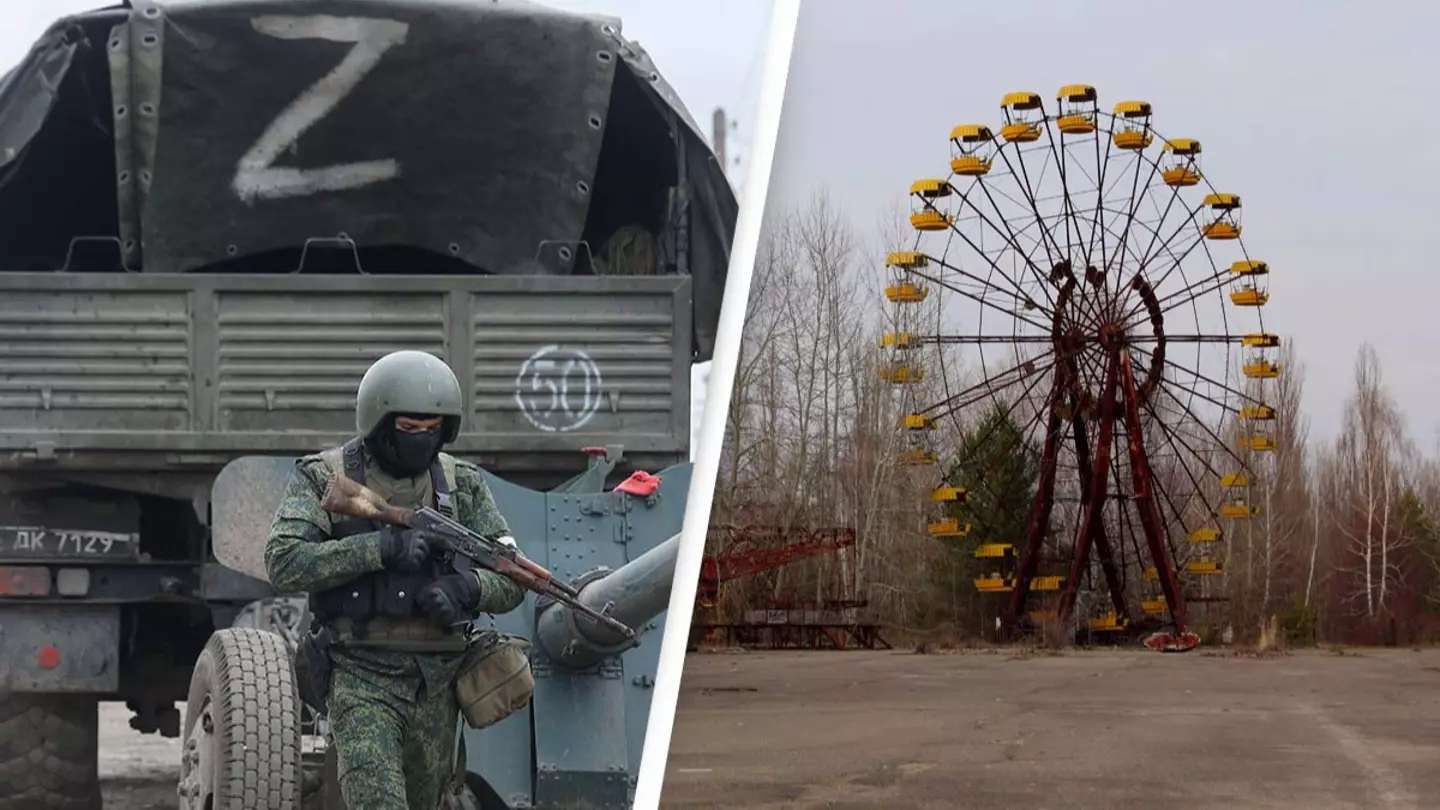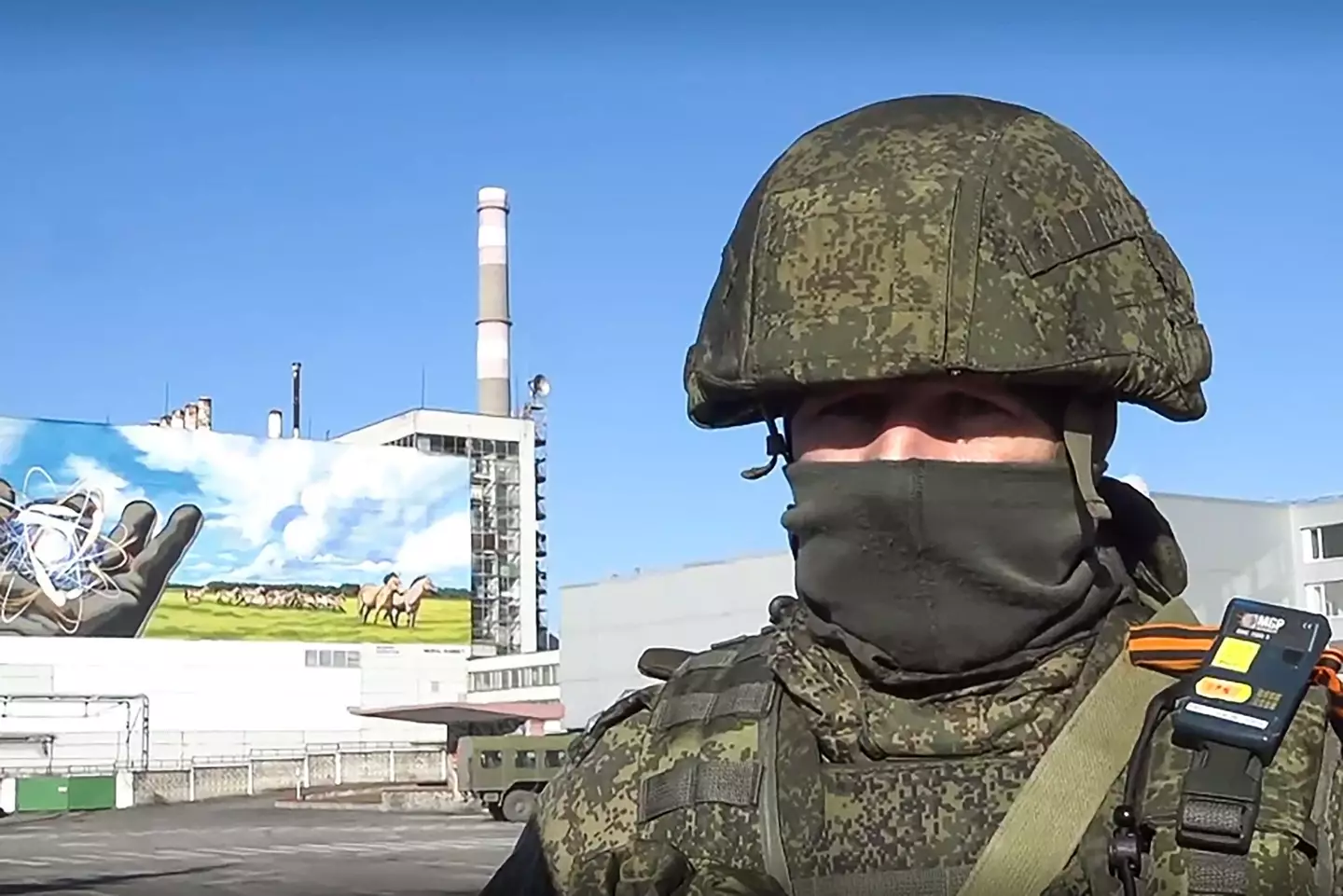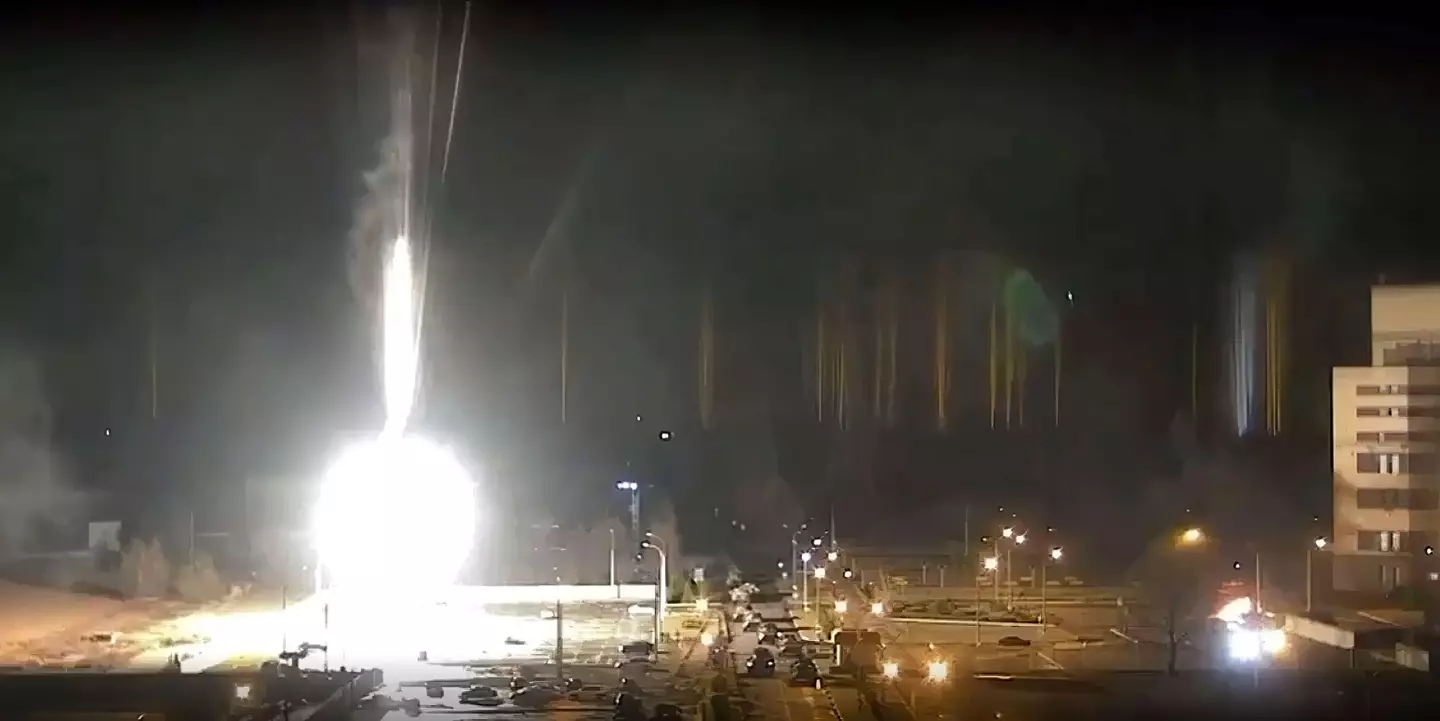
Staff at the Chernobyl and Zaporizhzhia nuclear power plants are being forced to work as hostages, leading to concerns about their welfare and the safety of the plants.
Both Chernobyl and Zaporizhzhia are currently under the control of Russian troops, with the Ukrainian workers tasked with running the plants unable to leave.
Reports out of the plants suggest that the staff have been left in dire conditions, surviving on only basic rations and working around the clock with little sleep.

Advert
According to the Daily Mail, workers held hostage in Chernobyl, which was captured by Russian forces within the first 48 hours of the invasion, are only being giving one bowl of porridge a day, and are working on just two hours of sleep each night.
'They are facing a very difficult situation and are starving, exhausted and depressed,' an unnamed source said of the around 100 workers trapped in the plant. 'With nowhere to sleep and no blankets, many are only sleeping for two to four hours on desks or wherever they can find a space.'
The source claimed that the staff – around a fifth of the usual workforce at the plant – had resorting to scavenging in the lockers of their coworkers in an effort to find food, medicine and other essential supplies.
In Zaporizhzhia, meanwhile, conditions are said to be slightly better, with three groups of workers rotating shifts to allow for more rest. However the UN's atomic regulator said that there were still issues with food supply to the plant, and little ability to communicate with the outside world.
International Atomic Energy Agency Director-General Rafael Grossi said he was 'extremely concerned' by the situation, amid reports that the workers were being pressured to take certain actions by Russian soldiers.

'Operating staff must be able to fulfil their safety and security duties and have the capacity to make decisions free of undue pressure,' Grossi warned.
Staff in Chernobyl are tasked with maintaining the safety of the remains of the plant, which was largely destroyed in a massive nuclear explosion in 1986. Zaporizhzhia, meanwhile, is Europe's largest active nuclear power plant, and consists of six reactors that were put at risk last week when Russian forces shelled the facility.
The incident drew international condemnation and led Ukrainian President Volodymyr Zelensky to accuse Russia of 'nuclear terrorism'.
The IAEA has said no excess radiation has been detected from either plant.
If you have a story you want to tell, send it to UNILAD via [email protected]
Topics: Russia, Ukraine, Chernobyl, World News
